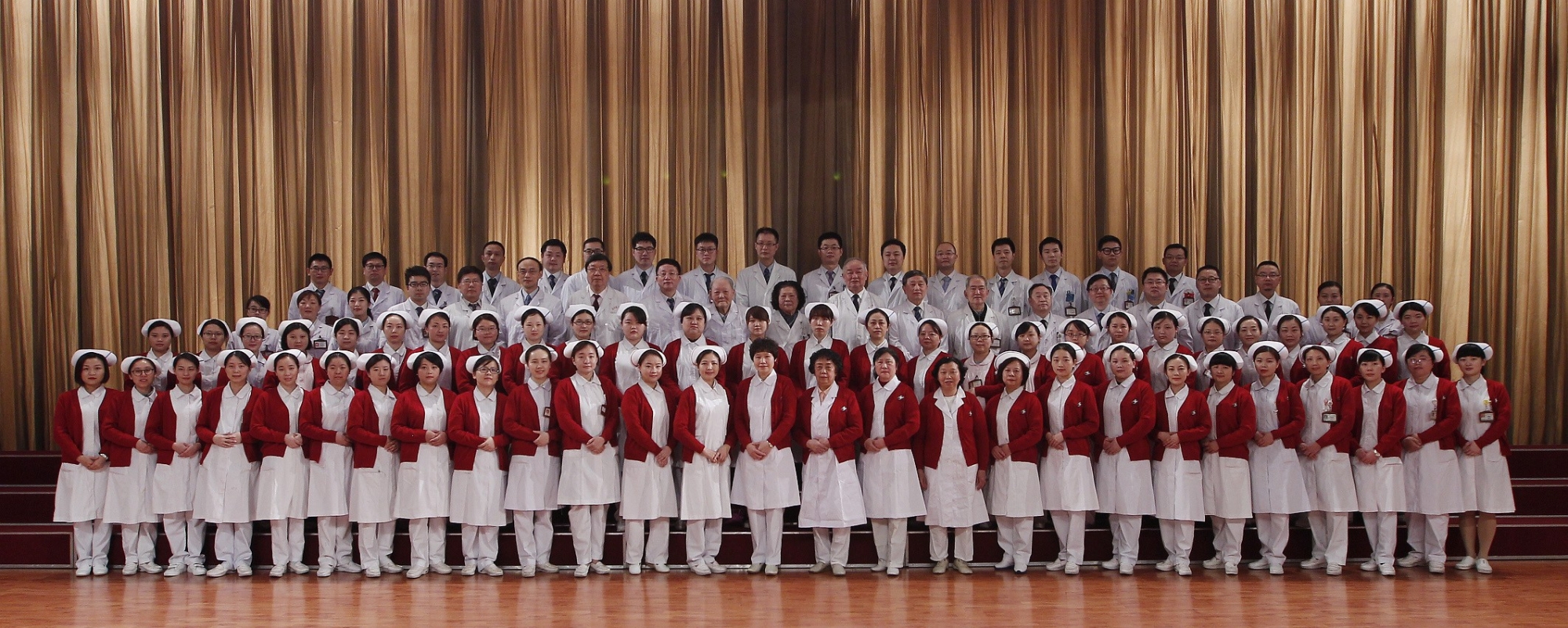Founded in 1957, the Department of Gastrointestinal Surgery at the First Affiliated Hospital of Chongqing Medical University integrates medical care, education, and research, maintaining a leading position in the Southwest China. In 2000, it was designated by the Chongqing Health Bureau as the Gastrointestinal Surgical Disease Treatment Center of Chongqing. In 2012, the Department of General Surgery (including Department of Gastrointestinal Surgery) was recognized as a National Clinical Key Specialty for General Surgery. In 2013, it was designated as Chongqing’s Medical Quality Control Center for General Surgery (including liver, pancreas, and small intestine transplants). In the same year, the National Health Commission officially accredited it as Chongqing’s Minimally Invasive Surgery Training Base. In 2019, the Chongqing Gastrointestinal Surgery Alliance was established, with the department serving as its chair institution. The department leads multiple gastrointestinal surgical organizations in Chongqing, including the chairman of the Chongqing Anti-Cancer Association, director of the Surgical Management Committee of the Chongqing Hospital Association, chairmanship of three specialized committees under the Chongqing Anti-Cancer Association (Gastric cancer, Gastrointestinal Stromal Tumors, and Peritoneal Cancer), head of the Gastrointestinal Group of the Chongqing Medical Association’s Surgery Branch, and chairman of the Colorectal Cancer Committee of the Chongqing Medical Doctor Association. Currently, the department operates 3 inpatient wards with 210 beds, making it the largest gastrointestinal surgery center in Chongqing. Annually, it performs over 4,300 surgeries, including more than 2,000 gastrointestinal cancer surgeries (gastric and colorectal cancers), over 200 bariatric surgeries, and more than 600 surgeries for anorectal benign diseases, all ranking first in Chongqing ,with a minimally invasive surgery rate exceeding 90%.
The department specializes in laparoscopic gastrointestinal tumor surgery (gastric cancer, colon cancer, rectal cancer, and gastrointestinal stromal tumors), 3D laparoscopic surgery, Da Vinci robotic-assisted minimally invasive surgery, complex abdominal disease management, inflammatory bowel disease surgery, excision of large intra-abdominal and retroperitoneal tumors, interventional therapy for gastrointestinal tumor, minimally invasive surgery for gastroesophageal reflux and hiatal hernia, endoscopic minimally invasive procedures, comprehensive treatment for obesity and type 2 diabetes, standardized gastrointestinal stromal tumor treatment, gastrointestinal motility testing (including esophageal manometry, 24-hour esophageal pH monitoring, and anorectal manometry), and surgical treatment of anorectal diseases. The department is highly experienced in early diagnosis and treatment of gastrointestinal tumors, selection of appropriate surgical methods, and low rectal cancer sphincter-preserving surgeries. We were the first in Chongqing to conduct laparoscopic colorectal and gastric surgeries, and maintains one of the highest rectal cancer sphincter-preservation rates in China. In 2016, the department pioneered Chongqing’s first laparoscopic-assisted transabdominal transanal total mesorectal excision (Ta-TME), significantly improving the sphincter-preservation rate for patients with mid- to low-rectal cancer, marking a new era for ultra-low rectal cancer anal preservation in Chongqing. In 2021, we introduced Hyperthermic Intraperitoneal Chemotherapy (HIPEC) for metastatic peritoneal cancers, offering a multi-disciplinary treatment approach for advanced gastrointestinal, gynecological, and hepatobiliary cancers. For advanced gastric cancer, it implements a comprehensive treatment approach combining surgical intervention, interventional chemotherapy, and immunotherapy, achieving high conversion rates for initially inoperable cases, with many patients experiencing remission or even complete resolution after treatment. The department also established Chongqing’s first specialized clinic for Gastrointestinal Stromal Tumors (GIST) clinic in 2013. In 2018, the Gastrointestinal Stromal Tumor Professional Committee of the Chongqing Anti-Cancer Association was founded, with our department serving as the host institution for the inaugural chairperson. With over 1,000 GIST patients treated, both survival rates and quality of life indicators have reached international standards. Additionally, the department was the first in Chongqing to establish a comprehensive treatment clinic for obesity and type 2 diabetes, and setting up a bariatric and metabolic surgery sub-specialty. The department has extensive experience in surgical weight-loss procedures, particularly for patients with super obesity (BMI > 50) who have multiple comorbidities. In 2023, it became the only hospital in Chongqing to passed the evaluation for the “Standardization and Quality Improvement Review for Bariatric and Metabolic Surgery” by the National Health Commission of China. The department also operates an independent Endoscopy Center, which is at the forefront of ultra-minimally invasive gastrointestinal procedures in Chongqing. It conducts precise diagnostic tests for gastrointestinal motility disorders, including esophageal manometry, 24-hour esophageal pH monitoring, and anorectal manometry. Based on these, the department provides surgical treatments for Gastroesophageal Reflux Disease (GERD) and esophageal hiatal hernia, addressing challenges faced by medical therapy. For giant intra-abdominal and retroperitoneal tumors, particularly those invading adjacent organs, which are often deemed inoperable by most hospitals, the department has successfully performed over 400 tumor resections since 2010, achieving national leadership in this field.
The department currently comprises 37 physicians, including 13 professors, 9 associate professors, 2 doctoral supervisors, 15 master supervisors, 15 PhD holders, 8 postdoctoral researchers, and 9 faculty members with overseas training experience. The department is accredited to confer both master’s and doctoral degrees in Gastrointestinal Surgery. Academically, the department has played a key role in authoring the national 5+3 General Surgery Textbook titiled “Digestive System Diseases”, a core educational resource for surgical training. Over the past five years, the department has secured 6 national continuing education projects, municipal-level projects, and published numerous academic papers. Over the last five years, it has obtained a total of 28 research projects with a cumulative funding of RMB 9.45 million, including 3 projects funded by the National Natural Science Foundation of China and 25 projects from various sources in Chongqing. The department has published more than 150 SCI-indexed papers, with 2 papers having impact factors above 10 and 24 papers scoring over 5. Additionally, the department has participated in 17 clinical Randomized Controlled Trials (RCTs), with 10 ongoing projects, including 4 Phase I clinical trials. The department has also obtained 8 new invention and utility patents.. The department has achieved regional leadership in minimally invasive gastrointestinal cancer surgery, robotic surgery, gastrointestinal stromal tumor treatment, multidisciplinary colorectal cancer care (MDT), and metabolic surgery. By hosting international academic conferences, minimally invasive surgery tours and training, and live surgical broadcasts, the department annually trains more than 20 visiting physicians, further enhancing its regional and national influence.





